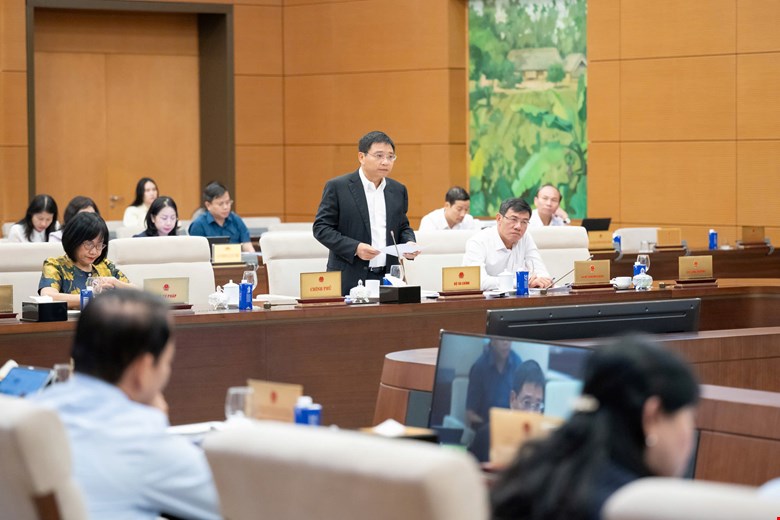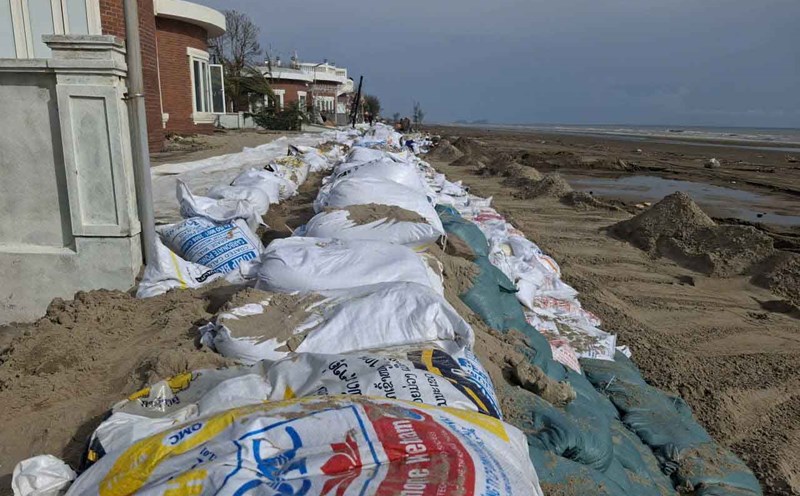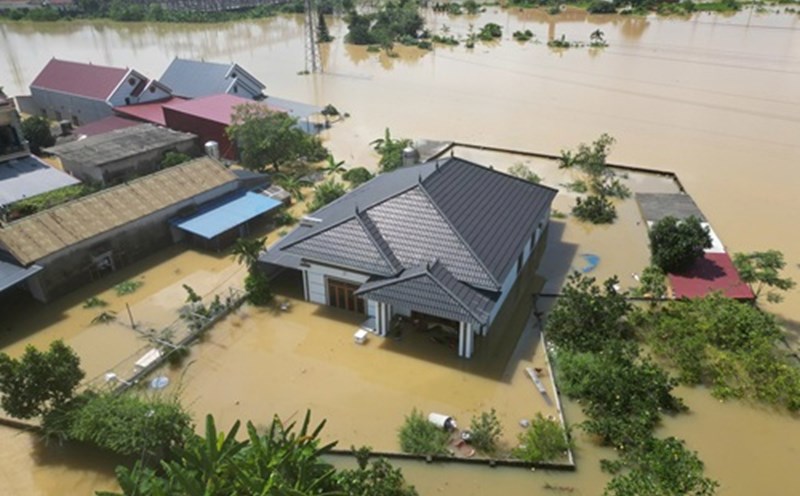On October 9, the National Assembly Standing Committee continued the 50th Session to review and comment on the Draft Law amending and supplementing a number of articles of the Price Law.
Presenting a summary of the Government, Minister of Finance Nguyen Van Thang said that the necessity of amending the Price Law comes from 5 main goals.
Including implementing the policy of streamlining the administrative apparatus; implementing decentralization of management for district and commune-level administrative units; ending the specialized Inspectorate on prices to comply with the new Inspection Law.
Cut down and simplify administrative procedures related to business activities of appraisal services; and finally promptly handle practical issues.
Regarding price stabilization, the draft Law amends the regulation on the responsibility for implementing price stabilization of the People's Committees at the district level (according to the assignment of the People's Committees at the provincial level) and assigns the responsibility to the People's Committees at the commune level for implementation.
This is to comply with the two-level local government model, ending the operation of the district-level People's Committee from July 1, 2025.
In order to cut and simplify administrative procedures, the Government proposed to remove some unnecessary conditions related to valuation services.
The draft abolishes the provisions in Clauses 8 and 9, Article 73 to synchronize with the Electricity Law 2024 and the Notary Law 2024.
In addition, the draft also removes the phrase "established and registered in the industry and profession of performing valuation services according to the provisions of the law on enterprises and" at Point b, Clause 1, Article 48.

The inspection report presented by Chairman of the Economic and Financial Committee Phan Van Mai stated that the Committee basically agreed with the necessity of promulgating the revised Law to suit the organizational model, implement decentralization, delegation of authority and ensure the consistency of the legal system.
However, the Committee has made many recommendations for detailed reviews of the contents of the draft Law, especially focusing on the feasibility of decentralization and consistency with current laws.
Regarding price stabilization, the Economic and Financial Committee basically agreed with the proposed amendment to ensure implementation according to the two-level government model.
However, the proposal and implementation of price stabilization at the commune-level government needs to be considered, ensuring feasibility in terms of resources, human resources, and scope of application for effective implementation.
Regarding the simplification of business conditions for appraisal services (eliminating phrases related to business registration and occupation), the majority of opinions in the Economic and Financial Committee agreed, but suggested that the drafting agency should review to ensure compliance with the provisions of the Law on Enterprises on the establishment and registration of business activities and occupations.
Regarding the service of using sales areas at the market, for markets invested from the state budget (usually on a small scale, at the commune and ward levels), the Committee proposes to consider the regulation in the direction of assigning the provincial People's Committee to regulate the price framework and the commune-level People's Committee to regulate specific price levels.











